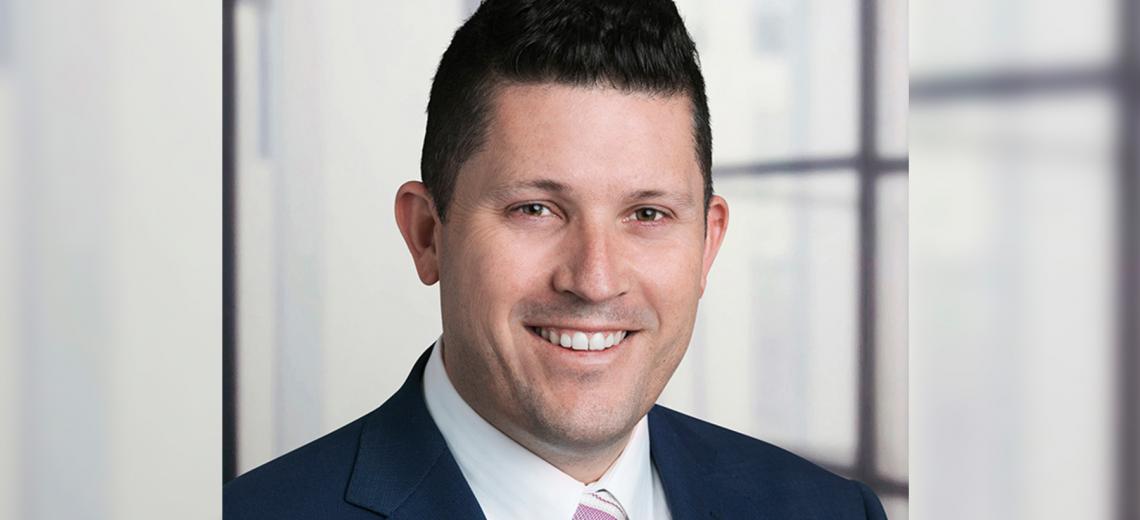
8 minute read
CBE alumnus Adrian King is a Partner at PricewaterhouseCoopers (PwC). Over his career he has accumulated a broad range of experience across assurance and consulting assignments, with both government and private sector clients.
Adrian joined PwC after completing his studies at ANU. In this interview, Adrian discusses his career’s influencers, working for a Big 4 firm, the key attributes employers are looking for and Australia’s post-COVID-19 prospects.
Can you tell us about your career path, and what led you to the role you're in today?
I studied Commerce and Law at ANU, and worked in the public service during my degrees. I also took a gap year between my third and fourth years of University to travel the world. I decided to apply for a graduate role at PwC in my final year of Law school as I thought the breadth of assurance and consulting was better suited to me.
Who are some of the influencers that have shaped your thinking about the field you’re in and why?
I have worked with a number of amazing colleagues and clients over my career. I tend to learn the most from watching and listening, especially how people handle stressful situations and engage with other people. In my field of assurance, we are required to apply standards that clients do not always agree with, or provide advice that sometimes people don’t want to hear. So the most important lesson has been how to influence with compassion.
In a professional capacity, I hope we can embrace the flexibility and focus on outcomes rather than inputs.
What do you think the future for Australia will look like after being shaped by the current global COVID-19 crisis and the responses from the Federal, State and Territory Governments?
I think there are going to be several impacts; some are easy to predict, and others we will have no idea until 10-yearstime.
The easy ones are:
- It has crystallised quickly that people and professions can adapt to new ways of working, such as virtual presence and remote working, will thrive.
- In a professional capacity, I hope we can embrace the flexibility and focus on outcomes rather than inputs.
- We will critically reflect on our business resilience and supply chains, so that all businesses are better placed to absorb another shock like this in the future.
- We will also have a lot more public debt that needs to be repaid in the long term.
The harder ones are:
- The impact on relationships at a personal level, and then at the most macro levels like world trade and US/China relations.
- Our personal resilience and mental health: I think there are immediate challenges in terms of isolation and anxiety, but I’m also hopeful that a pandemic of this nature might provide us with a new perspective on what really matters in the future.
- I think we are fortunate to live in a wealthy country like Australia and can afford to take the measures our respective state governments have been implementing. I worry about the exacerbation of the digital divide and the ability of developing countries to withstand such a pandemic. Self-isolation is an affluent privilege.
How can companies best re-design their business processes in response to the current climate of uncertainty and maintain long-term momentum for business recovery?
I think the businesses that are already adapting and pivoting their models are able to do this because of their mindset and culture, not their processes. There will no doubt be many reflections on business continuity, supporting infrastructure and the like, but I keep being amazed by the small businesses that are pivoting what they do and deploying existing supply chains in new ways. This is more about innovation and agility than process but they all need resilient infrastructure, especially technology.
The biggest lesson was learning how to learn [at ANU] and this helped me with my further studies, like the CA program.
How did your degree prepare you for your career?
My degree started my interest in business, how it works, the role it plays in our economy and society. The biggest lesson was learning how to learn, and this helped me with my further studies, like the CA program. Time management and perspective were probably two others skills I learned (to varying degrees of success) at university that are critical in my career.
As a Partner at PwC, what are the most important attributes you look for when interviewing applicants for graduate roles?
Engagement, inclusiveness, the ability to listen and to work as a team. We interview for cultural fit and values alignment.
Look for a firm where you feel your values most strongly align.
What has been the biggest challenge you have had to overcome on the road to success, and how has it influenced your professional identity?
I think it is probably happening right now with COVID-19. We have to make some hard decisions about how we keep all of our team with PwC so that everyone is around for when the rebound occurs. I’m lucky to work with an amazing team who all want to work together and our decisions are guided by a strong set of shared values.
What is your advice for first year students interested in working with a Big 4 consulting firm after completing their degree(s)?
Have a go, try new things and don’t be impatient, because it’s a long game. Look for a firm where you feel your values most strongly align.
The ANU College of Business and Economics offers an extensive range of specialised programs in Commerce. Click here for more details.
